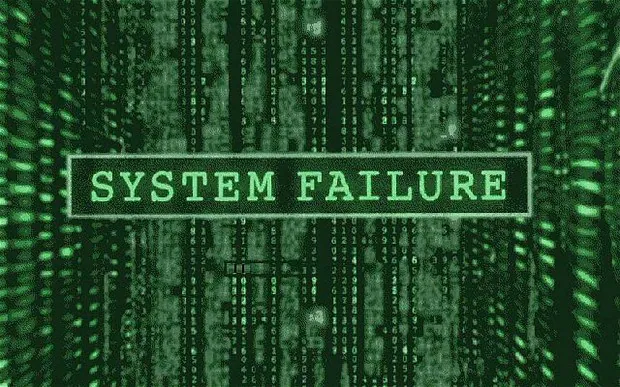Staying Connected: An Argument in Favour of the Matrix
In the 1999 science fiction classic The Matrix, audiences are introduced to a profound philosophical dilemma: Would you rather live a comfortable lie or face an uncomfortable truth? The film’s protagonist, Neo, famously chooses the red pill, waking up to a horrifying reality where machines enslave humanity, and the world he knew was nothing more than a simulated illusion, The Matrix. Characters like Morpheus, Trinity, and the rest of the human resistance fight to “free” people from the Matrix and show them the truth. However, not all characters share this vision. One crew member, Cypher, deliberately betrays his comrades to return to the simulated world. As he explains his reasoning, the film subtly invites us to question the righteousness of the resistance’s cause. I suggest that remaining connected to The Matrix, while seemingly cowardly and perhaps selfish, offers compelling emotional, psychological, philosophical, and even moral justifications that challenge the very nature of reality and what it means to live a meaningful life.
Comfort and Stability Over a Desolate Truth
The real world outside the Matrix is portrayed as a barren and devastated wasteland. Human hands permanently blocked out the sun in a failed attempt to stop the machines, and the Earth’s surface is littered with ruins and destruction. The survivors live underground in Zion or aboard grimy ships like the Nebuchadnezzar, where conditions are harsh, food is flavourless, and technology is crude, yet still seemed necessary despite the world being in that situation and blamed on the evolution of technology and the rise of the machine.. In contrast, the Matrix presents a world of warmth, colour, and familiarity. People inside it can access art, culture, cuisine, and leisure. In short, all the elements of a civilised and enjoyable life.
Cypher embodies the rejection of suffering for a life of choice, now that he is aware that he has a choice.. In a key scene, he dines with Agent Smith and explains his motives:
“I know this steak doesn’t exist. I know that when I put it in my mouth, the Matrix tells my brain that it is juicy and delicious. And you know what I’ve realised? Ignorance is bliss.”
While many viewers criticise Cypher for his betrayal, his reasoning touches on a profound truth about human nature: most people, when faced with a choice, will choose safety, comfort, and predictability over trauma, hunger, and the despair of existence. Is it truly an act of heroism to pull someone out of a simulation where they are happy, only to thrust them into a grim reality where they are likely to suffer or even die?
Authentic Experience Within an Artificial World
While the Matrix is a simulation, it creates genuine experiences. Emotions felt within it are real. Relationships are real. Joy, grief, success, and failure are all part of the daily lives of those inside. Even after waking up, characters like Neo and Trinity continue to live and fight inside the Matrix because the real world offers no opportunity for meaningful human expression. Their most significant moments, love, powers, and sense of self, are all realised within the connected world. They are living a life of choice.
This raises a few key questions:
- If an experience feels real, does it matter if it is simulated?
- Is everything simulated?
- How would life be if we only lived a life focused on fun, fearlessness, and freedom?
Freedom Within the Matrix
One of the resistance’s primary justifications for freeing people from The Matrix is the notion of freedom. They believe that humanity deserves to make real choices and live in a world not governed by machines. But freedom in the so-called real world of the film is limited. People are born into resistance, living on ships, fed the same slop, trained to fight, and burdened by the constant threat of annihilation. (Does this sound familiar in our “real life”?) Their choices are far fewer than the ones available in the simulation.
In contrast, The Matrix allows people to choose careers, fall in love, raise families, write books, build art, and explore their passions. Ironically, this artificial world provides more perceived autonomy than the devastated real one. Cypher understands this and requests to return as a wealthy man, perhaps even a movie star, roles he could never assume in the resistance. If life is short and suffering is unavoidable, who could fault someone for choosing a beautiful dream over a painful reality?
The Subjectivity of Reality
Morpheus, one of the film’s champions of truth, ironically undermines his mission when he explains to Neo:
“What is real? How do you define ‘real’? If you’re talking about what you can feel, smell, taste, and see, then ‘real’ is simply electrical signals your brain interprets.”
This quote transcends mere rhetorical flair; it offers a deep insight into the nature of perception. If all our experiences are filtered through the brain, and the Matrix flawlessly simulates those inputs, then what exists within it is real for those experiencing it. In this sense, reality is subjective. It isn’t fixed or unchanging but is instead shaped by the interpretations of consciousness. From this perspective, The Matrix isn’t merely a prison; it represents a different kind of reality—one that might even better align with the human experience.
A Question of Morality
Another moral ambiguity arises from the resistance’s decision to wake people up without their consent. Neo is given a choice, but most humans inside the Matrix are not. They are forcibly disconnected, brought into a world of terror, and told to fight a war they never signed up for. (Does this feel like a familiar scenario to you that we have been enslaved to for generations?) Is it ethical to rip someone out of a reality where they are content, all in the name of “truth”? For many, the truth is not worth the price of constant suffering. The supposed morality of the resistance’s cause is far murkier than it appears.
Cypher, though vilified, offers a counterpoint: perhaps the more moral act is to allow people to live in peace. He says, “You call this freedom?” when referring to the harsh life aboard the Nebuchadnezzar. His decision to return to the Matrix, while selfish, is also a critique of the resistance’s ideological rigidity. He is, however, aware that by being “plugged in” to the Matrix, he can choose a life of his choosing, of his dreams. He has the choice to imagine and create his own reality. Would you, if you had a choice?
Conclusion: A Different Kind of Awakening
On the surface, The Matrix tells a tale of breaking free from illusion. However, it also highlights the value of that illusion, the comfort found in a crafted reality, and the legitimacy of choosing pleasure over pain. While Cypher may come across as a villain, his perspective resonates with many: the idea that chasing happiness, fulfilment, and peace can be more important than seeking absolute truth. Although Neo’s journey is portrayed as heroic, it’s certainly not the sole valid path. For those who prioritise psychological well-being, stability, and the richness of human experience, staying connected to the Matrix isn’t cowardly; rather, it can be seen as a rational choice. Ultimately, the quest for what is real might matter less than what feels meaningful. For many, that sense of meaning is discovered not in the stark “real world” but in the vibrant, soothing dream that the Matrix offers.

